A Timeless Cornerstone: 75 Years of the Universal Declaration of Human Rights
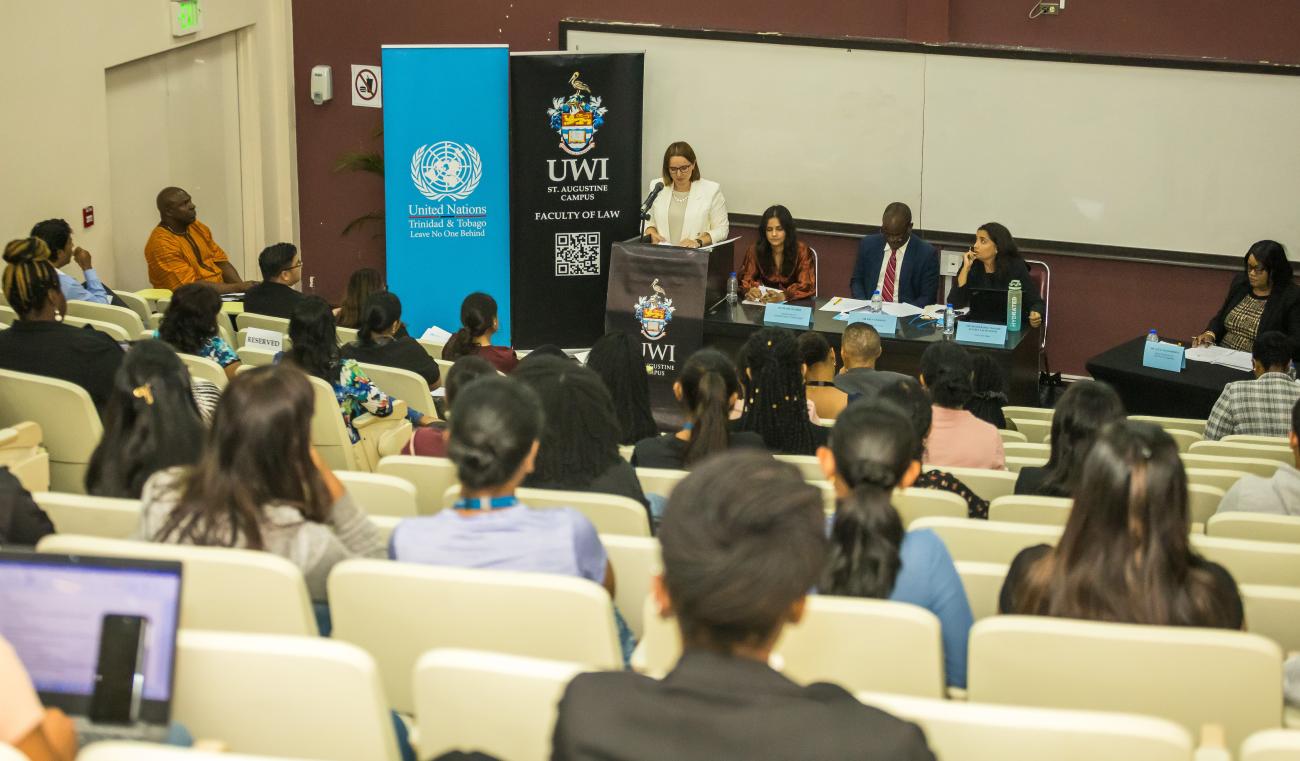
𝐔𝐖𝐈 & 𝐭𝐡𝐞 𝐔𝐍 𝐡𝐨𝐬𝐭𝐞𝐝 𝐚 𝐝𝐢𝐚𝐥𝐨𝐠𝐮𝐞 𝐟𝐨𝐫 𝐫𝐞𝐟𝐥𝐞𝐜𝐭𝐢𝐨𝐧 𝐨𝐧 𝐡𝐮𝐦𝐚𝐧 𝐫𝐢𝐠𝐡𝐭𝐬
In partnership with the University of the West Indies St. Augustine Campus, the UN in T&T hosted a panel discussion on Monday, November 20th, 2023, at the Noor Hassanali Auditorium, UWI on the theme, "75th Anniversary of the Universal Declaration of Human Rights: Reaching substantive equality and reframing narratives."
In her opening remarks, Dr. Alicia Elias-Roberts, Dean of the Faculty of Law, referred to the Declaration as being integral in paving the way for international treaties, since the Declaration has been translated into national and international law.
Dr. Elias-Roberts summarized the role the UWI plays in promoting equal access to higher education through its Gen S.T.A.R. (Successful Transition & Academic Readiness) initiative, which is geared towards providing mentorship and family outreach to first generation students - the first in their family to pursue tertiary education. Dr. Elias-Roberts also made reference to the high-level event organized by OHCHR in Geneva to commemorate the 75th Anniversary of the Declaration, which includes pledges on the protection of human rights.
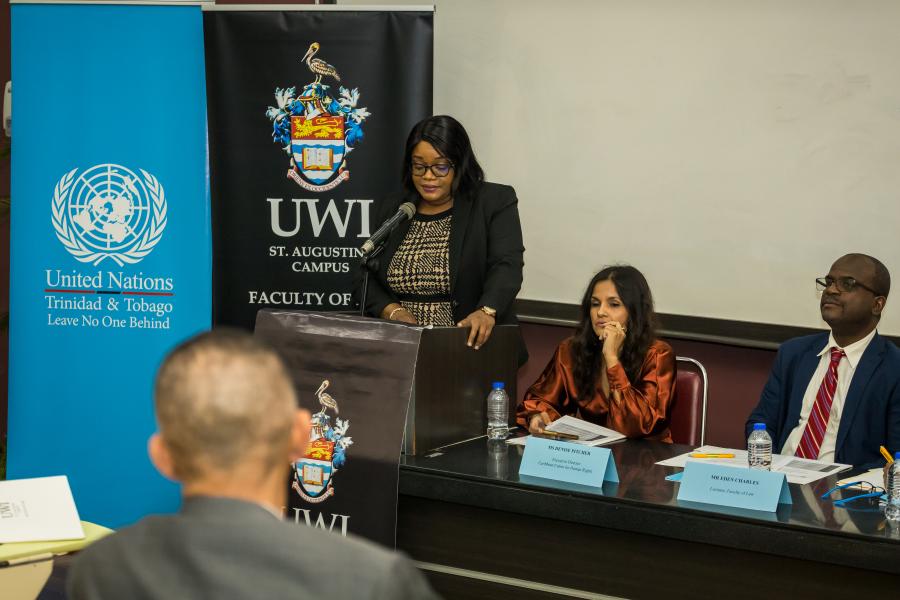
In her welcome remarks, Joanna Kazana, UN Resident Coordinator, referenced the Declaration as a beacon of hope, a testament to the inherent dignity and worth of every human being.
"The Declaration is the expression of our shared values and best interests of humanity," she said. "Its 30 articles cover the right to life, liberty, security, equality, non-discrimination, freedom of expression, assembly, and association, among others. We know that the spirit of the Declaration has not always been followed and human rights have not always been upheld. For many states however, the Universal Declaration was the foundation on which they continue to construct complex solutions to many of the old and contemporary ills of societies."
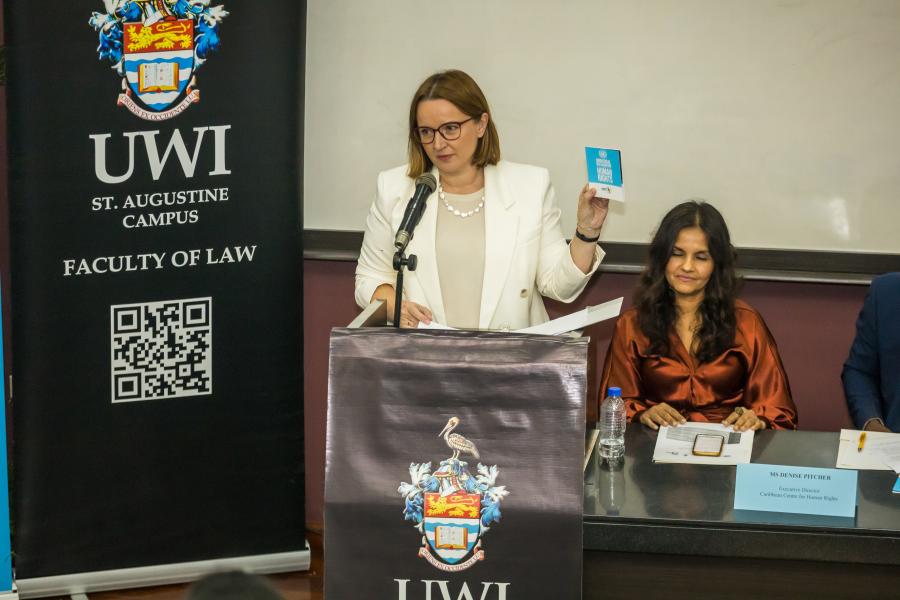
Denise Pitcher, Executive Director of the Caribbean Centre for Human Rights (CCHR) provided the perspective of civil society on the relevance of the Declaration. Ms. Pitcher highlighted the erosion of the human rights space and the weakening of the infrastructure given events in Gaza, the Democratic Republic of Congo and South Sudan. Ms. Pitcher made reference to the worrying trend of right wing extremism where voters have found migration to be unacceptable. The power of large corporations and misinformation on social media can contribute to this erosion of human rights, she added. Ms. Pitcher concluded that despite these occurrences, there is still room for human rights. She asserted that the Declaration is still relevant to making international human rights law and civil society can still play a role by engaging with the Human Rights Mechanisms for the protection and promotion of human rights.
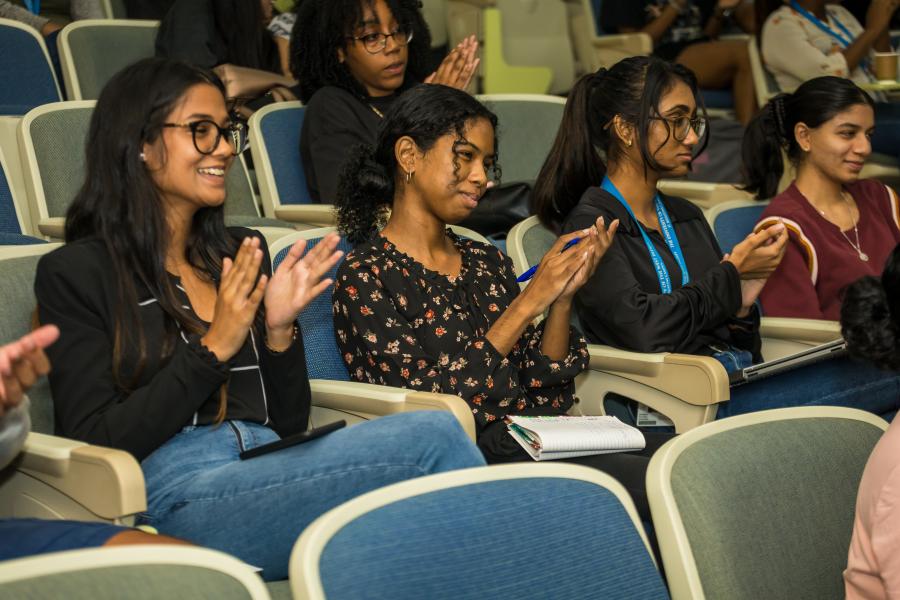
Mr. Eden Charles, Former Ambassador of Trinidad and Tobago to the UN and Lecturer at the UWI St. Augustine Faculty of Law, said the Declaration was borne out of the conscience of humanity following the atrocities of the Second World War. Mr. Charles made the distinction between formal equality, the circumstance in which laws apply equally but this does not generate equal outcomes, and substantive equality, which takes into account the rights of disadvantaged individuals. Mr. Charles lamented the veto power of the UN Security Council but hailed the decision of the International Court of Justice that human rights must also apply in war time. Mr. Charles hailed the importance of human rights in the field of climate action as particularly relevant to our changing times.
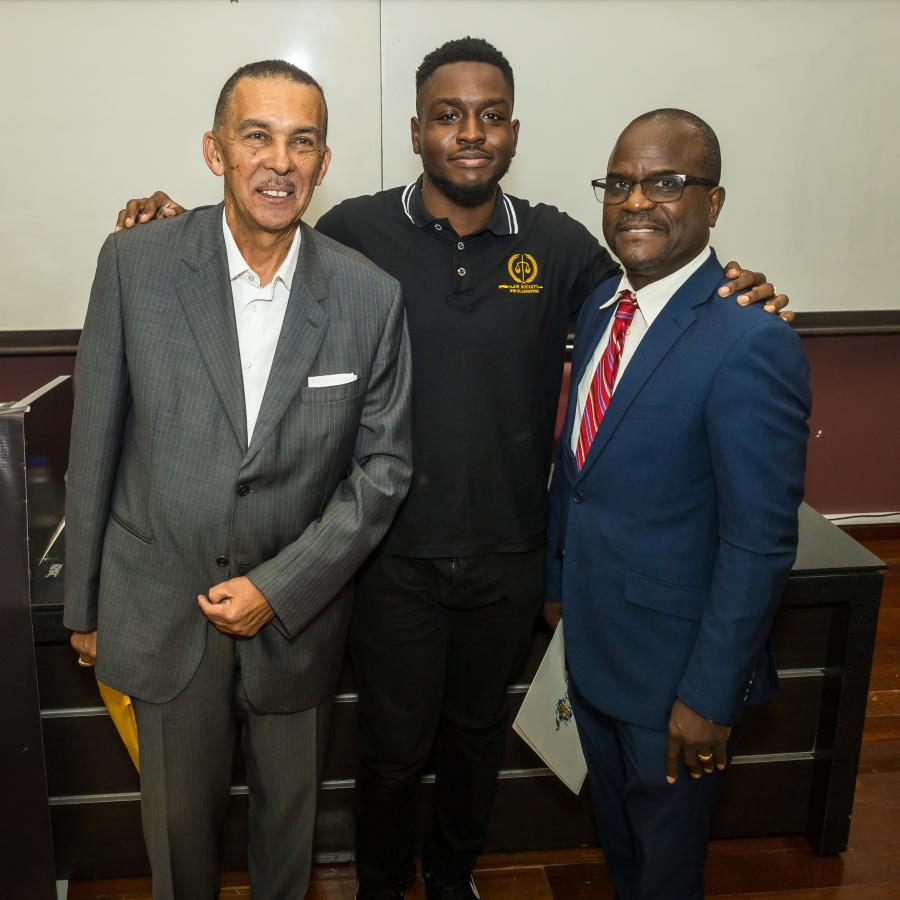
The Honourable Madam Justice Nalini Singh, hailed the Declaration as a guide of moral conduct for all time. Justice Singh referenced instances in international cases where the Declaration was interpreted as bestowing a right where the national laws were not sufficient and hailed the role of judicial activism in giving effect to the Declaration. Justice Singh also made reference to the decision of the Caribbean Court of Justice in the Maya Leaders Alliance v Belize case on indigenous rights. The CCJ held that while the Declaration is not binding, it is in fact relevant to the interpretation of the Constitution of Belize which in its preamble explicitly recognises that state policies must protect the culture and identity of its indigenous peoples but also must promote respect for international law and treaty obligations. The Court also found that international law recognises and protects the rights of indigenous peoples as this is implicit in the Declaration which records and protects the inherent dignity of all human beings.
Students in the audience asked questions about the relevance of treaties in a dualist state like Trinidad and Tobago that requires domestic incorporation to give effect to the obligations nationally. Another hot topic was the relevance of the Declaration and the UN given the current events in Gaza. Lively discussions also unfolded on the pathway to substantive equality for vulnerable groups including asylum seekers, persons with disabilities and LGBTI persons.
His Excellency Former President Anthony Carmona attended the panel discussion and made enlightening contributions about the situation of persons with disabilities in Trinidad and Tobago and the work that needs to be done to grant substantive equality. President Carmona recalled that when he desired to appoint Mr. Ian Roach, now Chairman of the Equal Opportunity Commission, as a Senator in Parliament that he was informed that the Parliament of Trinidad and Tobago could not accommodate wheelchair access and he was asked to reconsider the decision. He maintained his nomination and indicated that arrangements must be made.
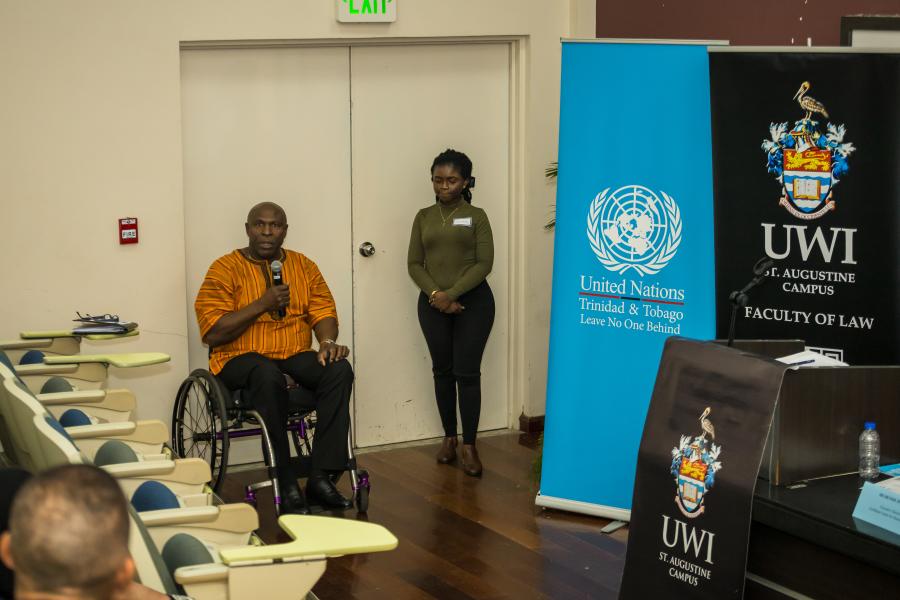
Mr. Roach, who attended the discussion, noted the accommodations for persons with disabilities in Trinidad and Tobago are not sufficient as he is obliged to call before going anywhere to find out whether he can be accommodated. Mr. Roach also responded to the discussion about the issue of UN geopolitics and indicated that the impression is that certain countries are immune while countries in Africa seem to be brought up before the International Courts.
Ms. Kazana acknowledged that the UN is under pressure to deliver, given the events in Gaza. She also underscored that despite the difficulties, the UN is still relevant as the agencies on the ground have had an impact on the lives of people around the world. She cited as examples the UN's humanitarian support to 230 million people worldwide, the work of agencies like UNEP in negotiating climate agreements, UNICEF's efforts to improve the welfare of children and UN Women's mission to reduce inequalities.











